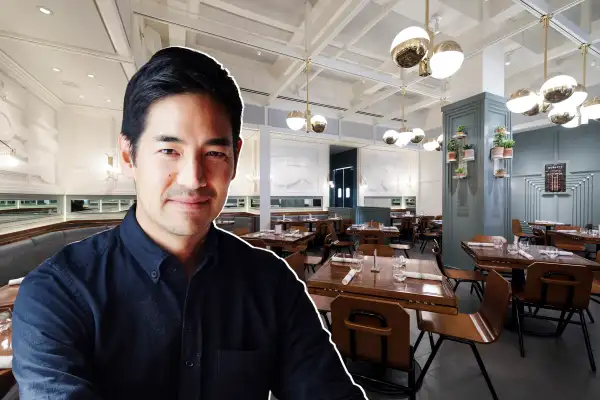I'm a Professional Chef. Here's When It's Smart to Buy Generic Foods

Perhaps the biggest secret of fine dining is that not everything in a meal needs to be fancy.
While the best ingredients handled properly make for the best dishes, and chefs often meticulously source meat and produce, other items can be had without the upcharge found in high-end markets.
Chef Craig Koketsu of the acclaimed New York City restaurant Quality Eats delivers refined, steakhouse-quality food with surprisingly affordable options on the menu. We talked to Koketsu about what home cooks should splurge on, and when to grab the generic product.
Skip the convenient pre-packaged groceries
Most home cooks are short on time, which makes the ready-to-go offerings of many supermarkets tempting, including things like peeled garlic cloves and already washed baby arugula in a plastic box. They simplify matters, to be sure, but “every ingredient, the more it’s processed, the more you’re going to pay for it,” Koketsu says. “If you can do it at home yourself, you can save money.” That means buying whole vegetables and big cuts of meat and breaking them down in the kitchen.
Read the ingredients carefully
Branding is king even in the grocery store. But when walking down an aisle, keep in mind what food you actually want. “When I’m not familiar with the product, I’ll look at the ingredients on cans,” Koketsu says. For example, if he doesn’t feel up to making his own chicken stock (like most people), he’ll look for a store-bought variety with the purest ingredients: water, chicken, carrots, and other essentials, without unnecessary add-ons like turmeric for yellow color. Koketsu has also found that canned tomatoes vary quite a bit in price, yet often use the same or similar tomatoes. Once you figure out what it is you’re actually looking for, you can look past the logo and go with the smartest option at the cheapest price.
The generic baking supplies are a significant savings
Is all flour equal? Not entirely, according to Koketsu, but close. “I can nitpick and say it depends on the application, but if you’re making cookies or something like that, most all-purpose flour is going to be pretty much the same.,” he says. Unless you’re going for something higher-level, like baking your own bread, scour for bargains in this aisle. Sugar also tends to be standard.
Don’t buy bulk items at an upscale store
Different stores specialize in different things. Become familiar with markets for what matters most to you—meat or veggies or bread, say—and visit a budget-oriented supermarket for the pantry staples, which are often sold for a gratuitous surcharge at the fancier establishments. Koketsu regularly shops at Whole Foods, but he says, “if you’re trying to save money, maybe don’t go to Whole Foods.”
Do spend more on your produce and meats. They matter the most.
When cooking a meal, you’re almost always showcasing the vegetables, fruits, and meats on the plate. As such, those are also the items it make sense to pay up for. “I shop mostly at the greenmarket for produce,” Koketsu says. He also generally opts for organic in that department because he believes the quality comes through. “If you go to a regular grocery store and get a head of lettuce, then if you go to greenmarket and get a head of lettuce, it’s so much fresher" at the latter. He also likes to develop relationships with butchers to make sure he’s getting premium meats at fair prices. It may not be as cheap as what’s at the big-box store, but that’s okay. “The extra money you spent on quality ends up being worth it.”
Get to know your palate and what’s on your plate
If you’re paying more for a certain food than you would buying from a competitor, it helps to know why you value the pricier option. Sometimes people actually prefer the lower-cost version. “A lot of people think higher-grade maple syrup is better,” Koketsu says. “I find the opposite to be true. I like lower-grade syrups,” whose impurities impart more flavor. That grading system has changed, but the logic still applies: Find what makes you happy, and you may discover it’s actually less expensive. “The big savings,” accordingly to Koketsu, “is really in your general knowledge about food.”